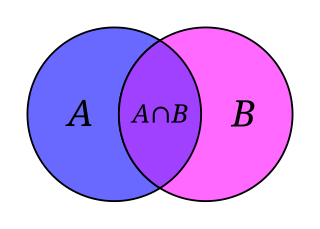
Donald Anthony Martin (born December 24, 1940), also known as Tony Martin, is an American set theorist and philosopher of mathematics at UCLA, where he is an emeritus professor of mathematics and philosophy.

Donald Anthony Martin (born December 24, 1940), also known as Tony Martin, is an American set theorist and philosopher of mathematics at UCLA, where he is an emeritus professor of mathematics and philosophy.
Martin received his B.S. from the Massachusetts Institute of Technology in 1962 and was a Junior Fellow of the Harvard Society of Fellows in 1965–67. [1] In 2014, he became a Fellow of the American Mathematical Society. [2]
Martin was the 1992 Tarski lecturer.
Among Martin's most notable works are the proofs of analytic determinacy [3] (from the existence of a measurable cardinal), Borel determinacy [4] (from ZFC alone), the proof (with John R. Steel) of projective determinacy [5] (from suitable large cardinal axioms), and his work on Martin's axiom [6] . The Martin measure on Turing degrees is also named after Martin.

In mathematics, the axiom of choice, abbreviated AC or AoC, is an axiom of set theory equivalent to the statement that a Cartesian product of a collection of non-empty sets is non-empty. Informally put, the axiom of choice says that given any collection of sets, each containing at least one element, it is possible to construct a new set by choosing one element from each set, even if the collection is infinite. Formally, it states that for every indexed family of nonempty sets, there exists an indexed set such that for every . The axiom of choice was formulated in 1904 by Ernst Zermelo in order to formalize his proof of the well-ordering theorem.

Set theory is the branch of mathematical logic that studies sets, which can be informally described as collections of objects. Although objects of any kind can be collected into a set, set theory — as a branch of mathematics — is mostly concerned with those that are relevant to mathematics as a whole.
In the mathematical discipline of set theory, 0# is the set of true formulae about indiscernibles and order-indiscernibles in the Gödel constructible universe. It is often encoded as a subset of the natural numbers, or as a subset of the hereditarily finite sets, or as a real number. Its existence is unprovable in ZFC, the standard form of axiomatic set theory, but follows from a suitable large cardinal axiom. It was first introduced as a set of formulae in Silver's 1966 thesis, later published as Silver (1971), where it was denoted by Σ, and rediscovered by Solovay, who considered it as a subset of the natural numbers and introduced the notation O#.
In the mathematical field of set theory, a large cardinal property is a certain kind of property of transfinite cardinal numbers. Cardinals with such properties are, as the name suggests, generally very "large". The proposition that such cardinals exist cannot be proved in the most common axiomatization of set theory, namely ZFC, and such propositions can be viewed as ways of measuring how "much", beyond ZFC, one needs to assume to be able to prove certain desired results. In other words, they can be seen, in Dana Scott's phrase, as quantifying the fact "that if you want more you have to assume more".
In mathematics, the axiom of determinacy is a possible axiom for set theory introduced by Jan Mycielski and Hugo Steinhaus in 1962. It refers to certain two-person topological games of length ω. AD states that every game of a certain type is determined; that is, one of the two players has a winning strategy.
In mathematical logic, projective determinacy is the special case of the axiom of determinacy applying only to projective sets.

John Robert Steel is an American set theorist at University of California, Berkeley. He has made many contributions to the theory of inner models and determinacy. With Donald A. Martin, he proved projective determinacy, assuming the existence of sufficient large cardinals. He earned his Ph.D. in Logic & the Methodology of Science at Berkeley in 1977 under the joint supervision of John West Addison Jr. and Stephen G. Simpson.
Determinacy is a subfield of set theory, a branch of mathematics, that examines the conditions under which one or the other player of a game has a winning strategy, and the consequences of the existence of such strategies. Alternatively and similarly, "determinacy" is the property of a game whereby such a strategy exists. Determinacy was introduced by Gale and Stewart in 1950, under the name "determinateness".

Robert Martin Solovay is an American mathematician working in set theory.

Originally, fallibilism is the philosophical principle that propositions can be accepted even though they cannot be conclusively proven or justified, or that neither knowledge nor belief is certain. The term was coined in the late nineteenth century by the American philosopher Charles Sanders Peirce, as a response to foundationalism. Theorists, following Austrian-British philosopher Karl Popper, may also refer to fallibilism as the notion that knowledge might turn out to be false. Furthermore, fallibilism is said to imply corrigibilism, the principle that propositions are open to revision. Fallibilism is often juxtaposed with infallibilism.
Steve Jackson is an American set theorist at the University of North Texas. Much of his most notable work has involved the descriptive set-theoretic consequences of the axiom of determinacy. In particular he is known for having calculated the values of all the projective ordinals under the assumption that the axiom of determinacy holds.

Matthew Dean Foreman is an American mathematician at University of California, Irvine. He has made notable contributions in set theory and in ergodic theory.
In descriptive set theory, within mathematics, Wadge degrees are levels of complexity for sets of reals. Sets are compared by continuous reductions. The Wadge hierarchy is the structure of Wadge degrees. These concepts are named after William W. Wadge.
In descriptive set theory, a set is said to be homogeneously Suslin if it is the projection of a homogeneous tree. is said to be -homogeneously Suslin if it is the projection of a -homogeneous tree.
In descriptive set theory, the Borel determinacy theorem states that any Gale–Stewart game whose payoff set is a Borel set is determined, meaning that one of the two players will have a winning strategy for the game. A Gale–Stewart game is a possibly infinite two-player game, where both players have perfect information and no randomness is involved.

Menachem Magidor is an Israeli mathematician who specializes in mathematical logic, in particular set theory. He served as president of the Hebrew University of Jerusalem, was president of the Association for Symbolic Logic from 1996 to 1998 and as president of the Division for Logic, Methodology and Philosophy of Science and Technology of the International Union for History and Philosophy of Science (DLMPST/IUHPS) from 2016 to 2019. In 2016 he was elected an honorary foreign member of the American Academy of Arts and Sciences. In 2018 he received the Solomon Bublick Award.
The Higher Infinite: Large Cardinals in Set Theory from their Beginnings is a monograph in set theory by Akihiro Kanamori, concerning the history and theory of large cardinals, infinite sets characterized by such strong properties that their existence cannot be proven in Zermelo–Fraenkel set theory (ZFC). This book was published in 1994 by Springer-Verlag in their series Perspectives in Mathematical Logic, with a second edition in 2003 in their Springer Monographs in Mathematics series, and a paperback reprint of the second edition in 2009 (ISBN 978-3-540-88866-6).